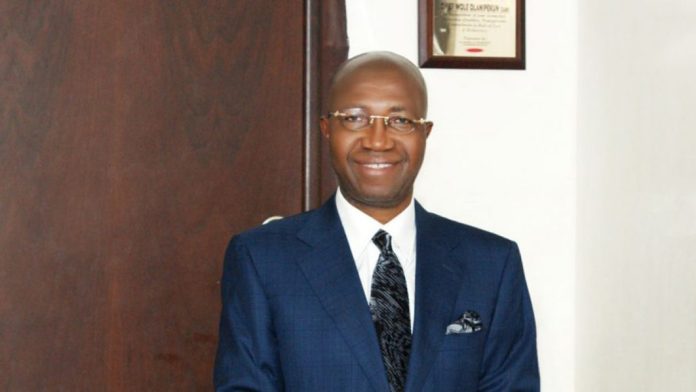...To get all news updates, Join our WhatsApp Group (Click Here)
Also Join our WhatsApp Channel (Click Here)
During the week, a Senior Advocate of Nigeria, Wole Olanipekun’s law firm came under fire for allegedly attempting to ‘steal’ a client from another prestigious firm like his, thus violating Rule 39 of the Rules of Professional Conduct, prohibiting self-advertising and solicitation by Nigerian legal practitioners or making comparison with or criticising other lawyers, including any statement about the quality of the lawyer’s work, the size or success of his practice or his success rate.
Saipem SPA, an Italian multinational oilfield services company, one of the largest in the world and formerly a subsidiary of Italian oil and gas supermajor, Eni, with operations in Nigeria, alongside Saipem Contracting Nigeria Ltd, were in court with the Rivers State Government over an alleged conspiracy to cheat and with intent to defraud the state of the sum of $130 million, being advanced payment for the construction of the OCGT power plant in Port Harcourt. Both companies were represented by the law firm, Ajumogobia & Okeke, owned by former Minister of State for Petroleum, Odein Ajumogobia.
thinking that they could possibly make a kill from the lawsuit and also provide the two companies a soft landing so that they would end up not paying the total amount they were being sued for, Adekunbi Ogunde, an employee of Wole Olanipekun & Co, who was made leading partner in the oil and gas practice area in the law firm in December 2021, decided to do the unthinkable. She wrote to Mr Francesco Caio, the Chief Executive Officer of Saipem SPA, attempting to steal the case from the original representative for her law firm. Unknown to her, the case was no longer in court. It had already been settled out of court about two months before she wrote to Caio, which was on June 20, 2022.
While marketing her law firm, she cast a bad light on Ajumogobia & Co as a law firm with less influence and clout in favour of her law firm, which she considered more influential and prestigious. An excerpt from her letter to Caio read in part, “..I believe that you need a more influential lawyer/law firm to prevent a potential huge pay out to Rivers State Government and without doubt, I believe my law firm, Wole Olanipekun & Co can help in this regard. It will also reveal that the presence of our lead partner, Chief Olanipekun SAN, OFR, in the matter, will significantly switch things in favour of Saipem.
“Chief Olanipekun SAN, OFR is currently the Chairman of the Body of Benchers, which is the highest ruling body in the Nigerian legal profession. In other words, Chief Olanipekun SAN, OFR is the head of the entire legal profession in Nigeria. Wole Olanipekun & Co has helped other multinationals avoid huge pay cuts in more complex, sensitive and highly political matters.”
Dismayed, Caio forwarded the letter to his company’s attorney who was to say the least, miffed that Wole Olanipekun & Co could descend so low as to want to ‘steal’ his client from him. Ajumogobia immediately wrote to Olanipekun, expressing extreme disappointment and utter disillusionment that a letter of that nature could emanate from his chambers, given his stature at the bar generally and as the current Chairman of the Body of Benchers, in particular.
The former minister was all the more disappointed that Olanipekun would be willing to use his position to influence Justices of the Supreme Court, Presiding Justices of the Court of Appeal and Chief Judges, thus committing gross misconduct of the worst kind. What annoyed Ajumogobia the most is the fact that the case was made public and personally known to Olanipekun and his firm.
According to Ajumogobia, Olanipekun had asked him about the matter during a dinner that they both attended a few months ago. Ajumogobia demanded a written apology to his firm from Wole Olanipekun & Co and another letter to Saipem top management retracting the initial letter. Olanipekun’s law firm quickly retracted the letter and apologised to Ajumogobia’s law firm. It disassociated itself from the email, expressing disgust and regret that it emanated from a partner in their firm who acted without authorisation. But the apology has done very little to remedy the situation, especially among the Nigerian legal community who have expressed dismay and anger over Olanipekun’s unethical act.
First, lawyers are unanimous with their concerns that the disclaimer from Olanipekun fell short of expectation, was incredibly offensive, derogatory and extremely disrespectful to Ajumogobia, who is also a SAN. They wonder why Olanikpekun would detail two junior associates to sign the apology letter disassociating his law firm from his employee’s action and addressed to Ajumogobia when he could have signed the letter to show good faith.
Secondly, the lawyers expressed the opinion that what Olanipekun’s law firm did was a serious breach that needed to be addressed to safeguard the integrity of the profession. According to them, if the matter was left without reprimand, it would open a floodgate for all sorts of things and it won’t be long before the profession is destroyed. Finally, they begged to differ that the senior partner, Olanipekun, claims ignorance of the letter soliciting Saipem, as a case of such magnitude would naturally require a higher authorisation and not be left in the hands of junior associates. All eyes are currently on the Legal Practitioners Disciplinary Committee, to see if they plan to act on the matter between Olanipekun and Ajumogobia and dish out the appropriate sanctions or if it will be swept under the carpet because of Olanipekun’s perceived standing in the society.
Be that as it may, this isn’t the first time Olanipekun has been in the eye of the storm over his unethical ways of practising law. A few months ago, Lucius Nwosu SAN, petitioned the Nigerian Bar Association to restrain Olanipekun from bidding for the position of chairman of Benchers, which is the professional body concerned with the admission of prospective students into the Nigerian Law School. The body also regulates the call of Law School graduates to the Nigerian Bar and the regulation of the legal profession in Nigeria.
In a letter addressed to Olumide Akpata, the NBA president, Nwosu accused Olanipekun of engaging in unprofessional conduct contrary to the provisions of section 3 of the Legal Practitioners Act Cap L 11, which provides that a Body of Benchers member should be of the highest distinction in the legal profession, a test that Nwosu says Olanipekun has failed repeatedly.
According to Nwosu, Olanipekun has unfortunately, over the years, progressively carried on a practice, which has culminated in his condemnation in unanimous decisions of the Supreme Court and final court of the land in the strongest of terms, particularly where Olanipekun sought for a review of the Supreme Court judgement on the Bayelsa State governorship election of 2019.
Olanipekun and Afe Babalola SAN, who both represented David Lyon, the Bayelsa governorship candidate and the All Progressives Congress (APC), were fined N30 million by the apex court over the application. Olanipekun, according to Nwosu, defiantly refused to pay the fine, adding that his refusal is even more complicated, given the fact that the Chief Justice of the federation and all the learned law lords of the Supreme Court are statutory members of the Body of Benchers, including all the heads of strategic courts in Nigeria. This and many more, Nwosu considered an act of indecency on the part of Olanipekun, enough for him not to even think of applying to sit as chairman of the highest policy body where ethics and regulation of the legal profession will be discussed and formulated. But the NBA was past caring and Olanipekun eventually emerged the chairman of the body.
You can get every of our news as soon as they drop on WhatsApp ...To get all news updates, Join our WhatsApp Group (Click Here)
Also Join our WhatsApp Channel (Click Here)

















